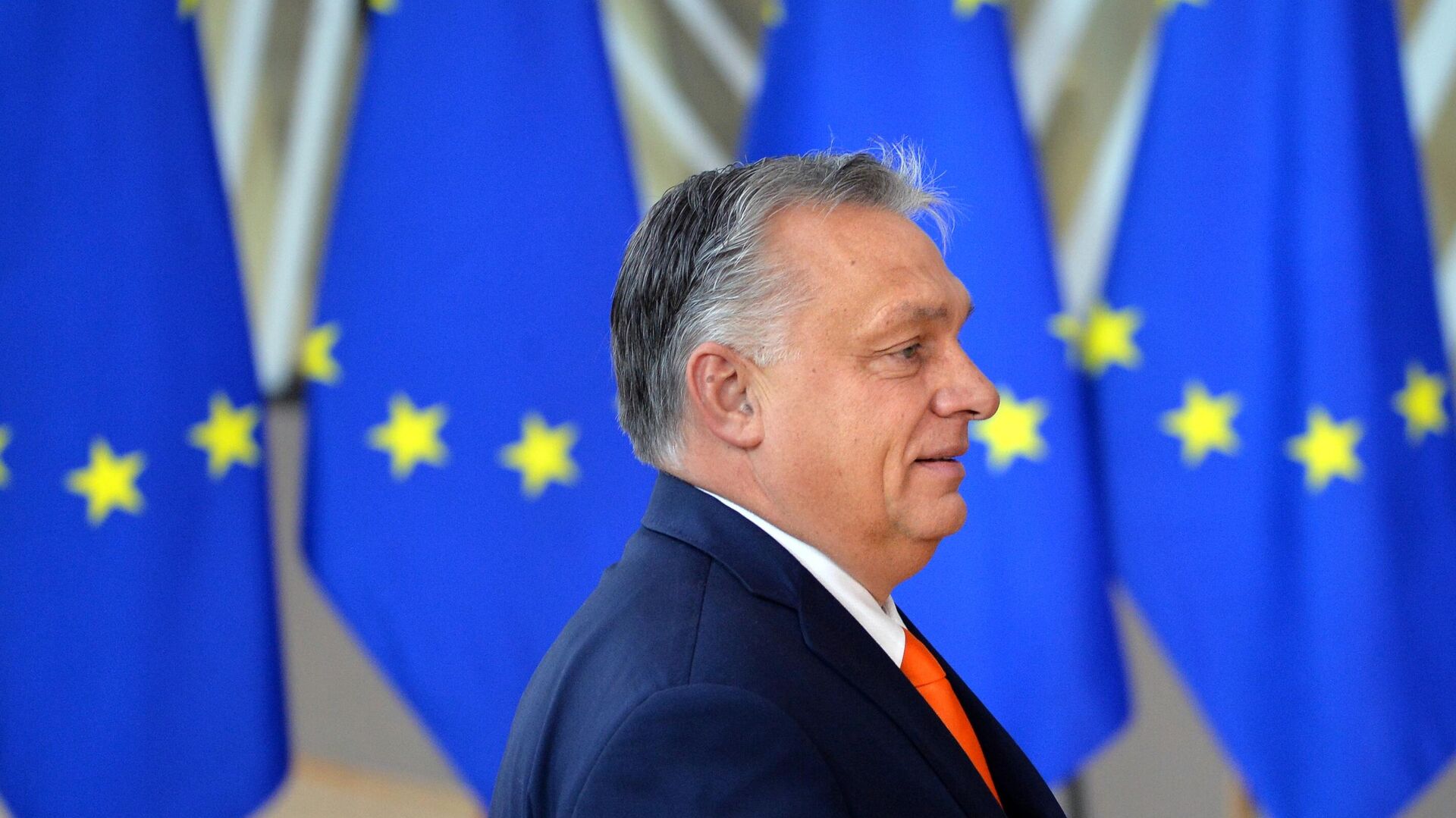https://sputnikglobe.com/20221206/hungarian-prime-minister-calls-for-review-of-sanctions-against-moscow-1105086275.html
Hungarian Prime Minister Calls for Review of Sanctions Against Moscow
Hungarian Prime Minister Calls for Review of Sanctions Against Moscow
Sputnik International
MOSCOW (Sputnik) - Hungarian Prime Minister Viktor Orban called on Tuesday for a review of sanctions against Russia, supporting the statement of French... 06.12.2022, Sputnik International
2022-12-06T06:49+0000
2022-12-06T06:49+0000
2022-12-06T06:49+0000
world
hungary
russia
sanctions
viktor orban
https://cdn1.img.sputnikglobe.com/img/07e6/09/1a/1101245016_0:224:2847:1825_1920x0_80_0_0_4c941e0d654669e7522bdbc12e0d0495.jpg
"President Emmanuel Macron is right: the cost of the [Ukrainian conflict] is not the same on both sides of the Atlantic. If we want the European industry to survive, we must address the European energy crisis swiftly. It’s high time to re-evaluate sanctions," Orban tweeted.On Monday, Macron told US broadcaster CBS News that there was "de-synchronization" in relations between Europe and Washington due to high energy prices. The French leader recalled that the EU is a buyer of gas and oil, while the US is a producer. Thus, as Macron noted, industry and households of the EU and the United States buy energy at different prices. This gap, he said, affects the purchasing power and competitiveness of European societies.Western countries have been seeking ways to limit Russia's income from oil and gas exports since the country launched a military operation in Ukraine on February 24. In October, the EU introduced the eighth package of sanctions against Moscow, which included a legislative basis for setting a price cap for maritime shipments of Russian oil to third countries. In addition to the price cap for Russian crude oil, the package provides for the introduction of a ceiling for Russian refined products starting from February 5, 2023.Last week, the EU reached an agreement on setting a price cap on Russian oil at $60 per barrel, which went into effect on Monday. The cap will be reviewed every two months to remain at 5% below International Energy Agency benchmark. The G7 nations and Australia also agreed the same day to set a $60 price ceiling on oil from Russia.
hungary
russia
Sputnik International
feedback@sputniknews.com
+74956456601
MIA „Rossiya Segodnya“
2022
Sputnik International
feedback@sputniknews.com
+74956456601
MIA „Rossiya Segodnya“
News
en_EN
Sputnik International
feedback@sputniknews.com
+74956456601
MIA „Rossiya Segodnya“
Sputnik International
feedback@sputniknews.com
+74956456601
MIA „Rossiya Segodnya“
hungary, prime minister, sanctions against moscow
hungary, prime minister, sanctions against moscow
Hungarian Prime Minister Calls for Review of Sanctions Against Moscow
MOSCOW (Sputnik) - Hungarian Prime Minister Viktor Orban called on Tuesday for a review of sanctions against Russia, supporting the statement of French President Emmanuel Macron that the conflict in Ukraine affects the European Union and the United States in different ways.
"President Emmanuel Macron is right: the cost of the [Ukrainian conflict] is not the same on both sides of the Atlantic. If we want the European industry to survive, we must address the European energy crisis swiftly. It’s high time to re-evaluate sanctions," Orban tweeted.
On Monday, Macron told US broadcaster CBS News that there was "de-synchronization" in relations between Europe and Washington due to high energy prices. The French leader recalled that the EU is a buyer of gas and oil, while the US is a producer. Thus, as Macron noted, industry and households of the EU and the United States buy energy at different prices. This gap, he said, affects the purchasing power and competitiveness of European societies.
Western countries have been seeking ways to limit Russia's income from oil and gas exports since the country launched a military operation in Ukraine on February 24. In October, the EU introduced the eighth package of
sanctions against Moscow, which included a legislative basis for setting a price cap for maritime shipments of Russian oil to third countries. In addition to the price cap for Russian crude oil, the package provides for the introduction of a ceiling for Russian refined products starting from February 5, 2023.
Last week, the EU reached an agreement on setting a price cap on Russian oil at $60 per barrel, which went into effect on Monday. The cap will be reviewed every two months to remain at 5% below International Energy Agency benchmark. The G7 nations and Australia also agreed the same day to set a $60 price ceiling on oil from Russia.


